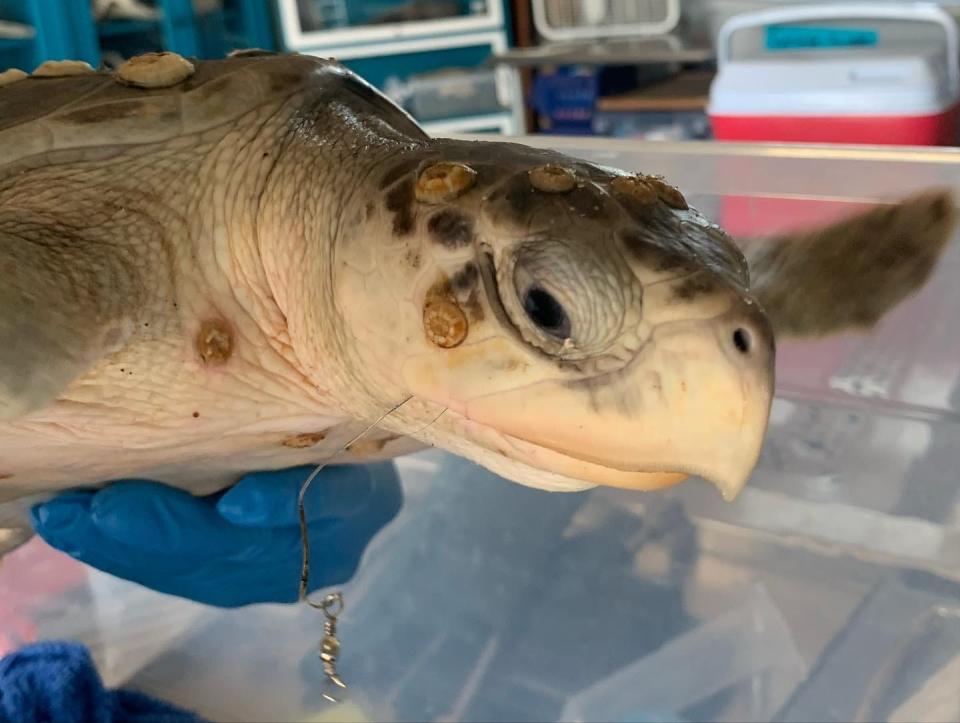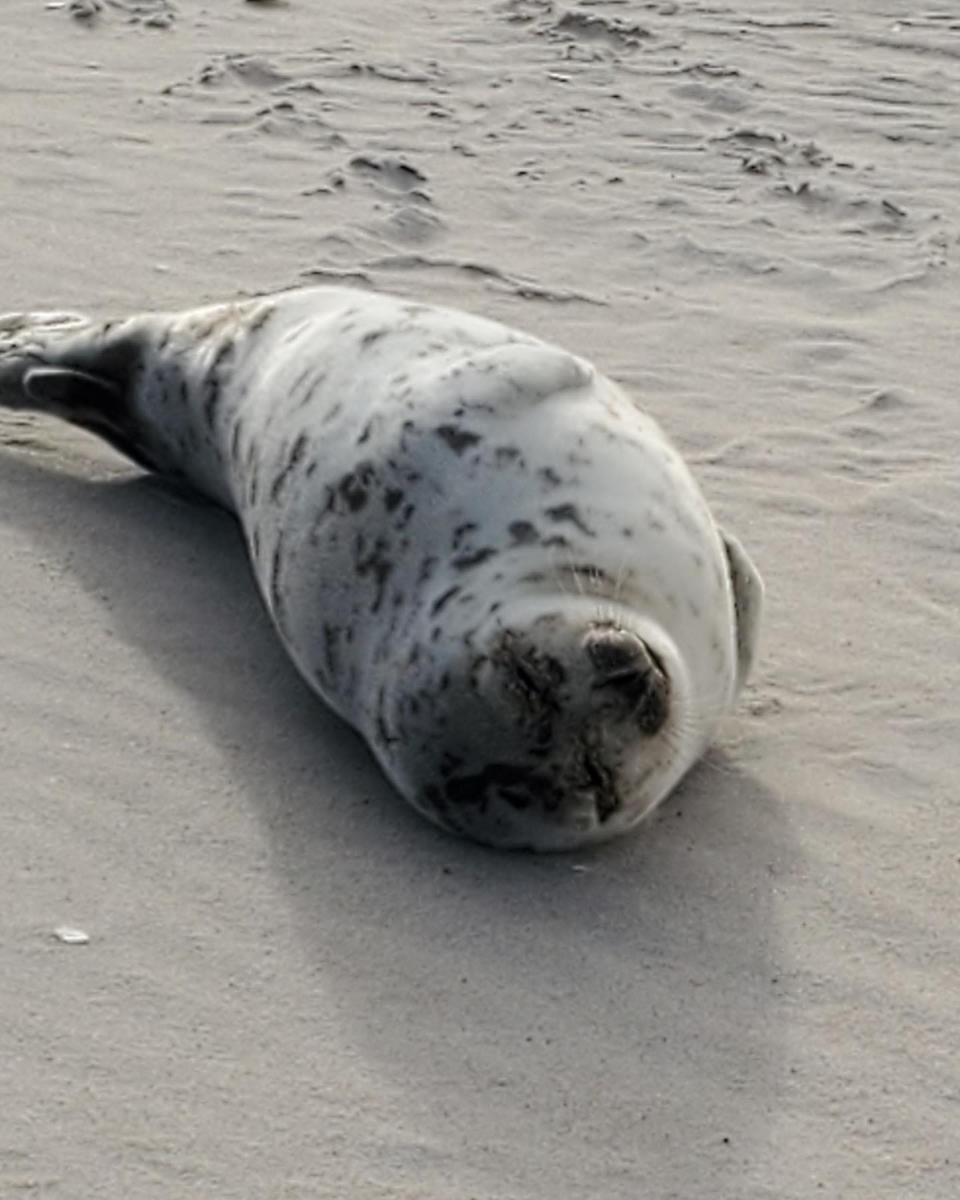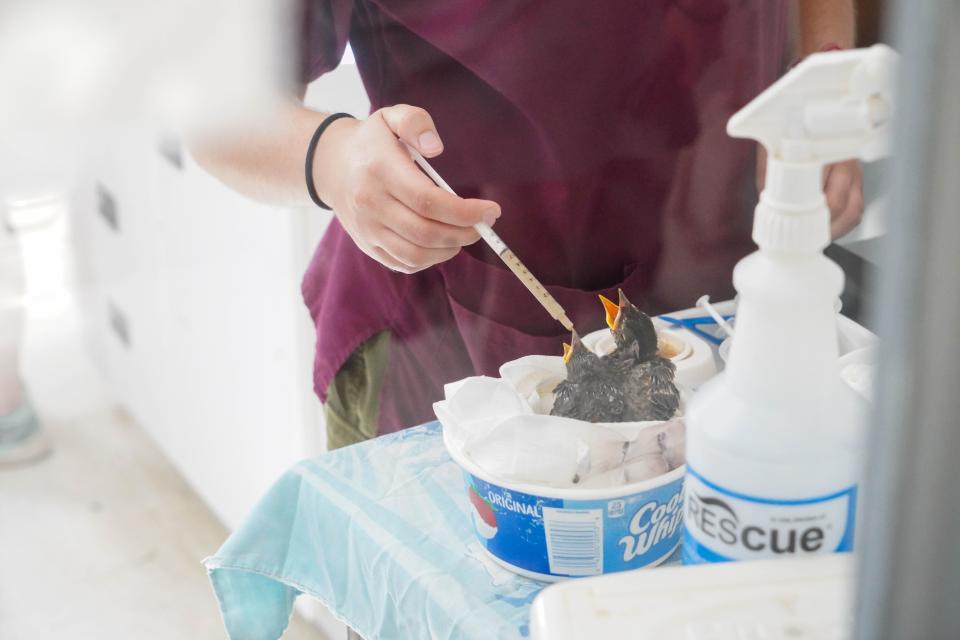As you enjoy Delaware's outdoors this summer, here's how to protect, help wildlife
Delaware’s sandy beaches and pristine walking trails are perfect for a summer getaway, but they’re also home to thousands of animal species that are sharing the land.
Every year, hundreds of seals, turtles, birds and other animals are found on Delaware’s beaches and trails, some critically injured.
Luckily, hundreds of volunteers and expert organizations specialize in wildlife rehabilitation and are ready to step in to help them.
Here is how to enjoy the Delaware outdoors this summer while being mindful of the creatures that live there and what to do if you encounter an injured animal.
Know the rules

Delaware is blessed with thousands of acres of trails and wildlife areas for people to enjoy, but it’s important to know the wildlife restrictions before making the trip to avoid disturbance or in some cases, a hefty fine.
Between May 1 and Sept. 30, dogs and other animals are not permitted on the boardwalks or beaches at any time. Pets are allowed in seashore parks. Steer clear of sandy dunes in any Delaware State Park because they’re very fragile and protected by state law.
At the beaches, seals are found most often because they naturally beach on dry land to rest, even if they’re not stranded or injured.
Federal law requires that if a seal, dolphin or sea turtle is stranded or resting on the shore, people must remain a minimum of 150 feet away. North Atlantic right whales require a distance of 500 yards and other types of whales require a range of 100 to 600 feet. A wildlife professional should be on-site to perform crowd control and ensure that everyone is keeping a safe distance.
If you’re walking on a trail, be cautious about stepping off and disturbing any delicate ecosystems. Don’t remove any naturally occurring items from the trail and, of course, don’t litter.
The Delaware Division of Fish and Wildlife has an extensive list of what you can and can’t do in state wildlife areas on its website. In state wildlife areas, it’s prohibited to operate radio-controlled devices like drones, let dogs off their leashes, cut or remove any trees or plants and more. Specific areas have their own rules too, so be sure to check on the department’s website when planning a visit.
There also are seven wildlife viewing platforms throughout the state: two in the Augustine Wildlife Area, two in the Woodland Beach Wildlife Area, and one each in the Little Creek Wildlife Area, Mispillion Harbor Reserve and the Assawoman Wildlife Area.
All of these locations require a Conservation Access Pass, available for purchase as annual passes, three-day passes or lifetime passes for seniors. Anyone accessing a wildlife area with a motor vehicle for hunting, birdwatching, hiking and other activities must have a pass displayed on their vehicle’s dashboard.
Who to call with an injured animal?

Finding an injured or endangered animal can feel helpless and scary. Luckily, there are experts around the state who are equipped to jump in and make necessary rescues.
According to Delaware’s Department of Natural Resources and Environmental Control, stranded animals usually are in a stressed state due to injury or illness, exposure to toxins or pollution, habitat loss and more.
More on helping injured wildlife: What to do if you find baby animals this spring in Delaware
The Marine Education, Research and Rehabilitation Institute in Lewes has trained volunteers on call 24/7 and answers between 250 and 300 calls every year. If you find a dolphin, manatee, whale, sea turtle or more commonly a seal, call MERR at 302-228-5029 to report it.
MERR also conducts annual counts of local bottlenose dolphin populations using the public’s observations. If you see a dolphin in Delaware’s waters, you can submit a quick report online.
MERR also accepts volunteers year-round who can help with data collection, educational outreach, response and rescue and more. For those who are interested in volunteering, contact merrinstitute@gmail.com.

The Delaware Council of Wildlife Rehabilitators and Educators is another nonprofit group that cares for sick and injured wildlife and returns them to the wild. They cover the entire state and have three different phone lines for wildlife rehabilitation incidents.
New Castle County: 302-834-4604
Kent County: 302-270-9256
Sussex County: 302-228-1063
If you stumble across an injured bird, Tri-State Bird Rescue and Research has the region’s experts in helping all feathered friends. People can bring a bird to the facility located at 170 Possum Hollow Road near Newark any day of the week from 9 a.m. to 5 p.m.
Nature Centers gude: Need a low-cost day trip? 12 Delaware nature centers with indoor and outdoor programs
Reward for info on seal: Seal that died after being found in Fenwick Island had been shot. Reward offered for info
Bird injuries are not always easy to decipher, and some birds may be dangerous to interact with. Tri-State can be reached by phone at 302-737-9542, where an attendant can give you advice and potentially send a staff member to the site.
Delaware’s Natural Resources Police are also on call to report a sick, injured or dead animal.
The Environmental Crimes Unit responds to reports of crimes like illegal dumping, open burning violations, water quality violations and more. To report a crime to this unit, call 800-662-8802 or text ECUTIP to TIP411 (847411).
The Fish and Wildlife Natural Resources Police can also be called for hunting or boating accidents, illegal hunting or fishing and other boat safety concerns. To make a report with this unit call 800-523-3336 or text FWTIP to TIP411 (847411).
Molly McVety covers community and environmental issues around Delaware. Contact her at mmcvety@delawareonline.com. Follow her on Twitter @mollymcvety.
This article originally appeared on Delaware News Journal: How to enjoy and protect Delaware wildlife this summer

